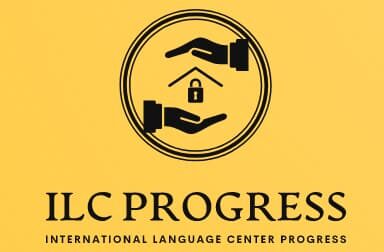An interpreter is a specialist who does interpretation or translation. He knows the culture and behavior of the inhabitants of another country, linguistic rules and norms. Can work in a small company or an international agency.
All about the profession of Translator:
How to become a translator
There are examples in world history of famous translators who achieved career growth without a linguistic education. Timothy Souladze, a law school graduate, works in Italian. But in most cases you do need an education; without it, employers are unlikely to consider you. So enroll in a language course and at the same time study techniques, translation tools, culture, and the history of language and communication.
How to become a high-paying specialist:
- practice on technically complex texts and interpreting;
- Study a rare and difficult language: Italian or Japanese.
If you are fluent in English, you will get less, but you will always be in demand; to be self-developed: to learn new languages or features of already mastered ones, and to be ahead of your competitors.
Types of interpreters
There are several specializations of the interpreter profession – the pros and cons and features of each:
- Translator. Translates technical descriptions and business documentation, legal and fiction. May use special software.
- Interpreter. Engages in “live” interpreting while communicating. It is important to know perfectly the language and its subtleties.
- Guide interpreter. Does not just talk about the culture and history of the area, but also actively interacts with people, answering unexpected questions.
Even during the training you have to decide which option is right for you, because they are very different, and it is not possible to combine several.
Formats of work
Each specialty has several types of activities:
- Consecutive interpreting is used at business events and negotiations. The speaker pauses during the speech, and the specialist formulates a phrase for translation.
- Simultaneous interpreting implies competent speech simultaneously with the speaker.
- Technical translation is used for texts with scientific and technical information.
- Legal translation is needed when working with legal documents: laws, regulations, contracts, founding documents and opinions.
- Artistic translation of literary works. It is important to have a command of words, to convey the author’s style and syllable.
- Medical translation is needed to handle professional articles by professors and doctors.
Where to start and where to study interpreting
You can start an in-depth knowledge of the language at school: attend language camps or take online programs. It is not so important where to study – the main thing is to get quality knowledge. So pay attention to the reviews of other students.
Professional knowledge can be obtained at the university, and after that you can take free and paid online courses for translators.
After your studies you can work in press centers, on the radio and television, and in book publishers. Interpretation is needed in travel agencies, consulates, international companies and foundations.
Duties
- translate spoken words, texts, letters or regulations;
- make full and abbreviated translations;
- edit translations of other employees;
- ensure that the results of the work correspond to the stylistic, lexical, and semantic content of the originals;
- comply with the use of definitions and terms;
- make abstracts and summaries of foreign literature and scientific papers;
- prepare thematic reviews on materials from foreign sources.
Skills and tools
- Is fluent in one or more foreign languages;
- writes and speaks correctly in native language;
- Knows special terminology in different languages;
- understands literature and can edit literary texts;
- understands the differences in mentality and characteristics of different language groups, is constantly learning;
- Is linguistically inclined, has analytical thinking and a good memory;
- Communicative, has a coherent and articulate mind, a rich vocabulary, and diction strives for self-development, active, sensitive, finds where to get the missing knowledge in the nuances of language and communication.
Pros and cons of the profession
Pros:
- high demand and earnings;
- opportunity to get a job at an international company;
- you can choose a specialty that you like;
- communication with people from different cultures and countries;
- travel and business trips;
- work on a freelance basis or in an office.
Cons:
- Unstable workload, especially for beginners;
- the cost of technology and software;
- for translators – constant strain on the eyes.
